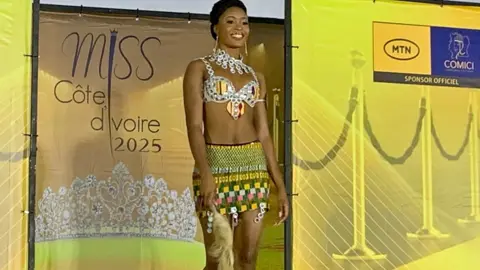Ivory Coast Bans Wigs and Weaves from Beauty Pageants: A Bold Step Toward Natural Beauty
In a move that has sparked significant discussion across the global beauty and fashion communities, Ivory Coast (Côte d'Ivoire) has officially banned wigs and weaves from its national beauty pageants. The decision was announced by the country's Ministry of Culture and Francophonie in early 2025, sending a clear message about the celebration of natural beauty and the importance of cultural authenticity.
The ban has already ignited debates about beauty standards, self-expression, and the role of hair in defining identity. As the first African country to implement such a policy in beauty contests, Ivory Coast is leading a conversation that might inspire similar actions across the continent and beyond.
Why the Ban?
The primary reason behind the ban, according to Ivorian authorities, is to encourage contestants to embrace their natural hair textures, which have often been overshadowed by European beauty standards in many pageant systems. In many African countries, including Ivory Coast, there is a long-standing tradition of wearing wigs and weaves, often seen as symbols of prestige or an attempt to align with global beauty ideals that prioritize straight, long hair.
However, the growing push for inclusivity and authenticity in the global beauty industry has led to a movement toward celebrating natural hair. For many African women, hair is a deeply personal and political subject, tied to history, culture, and self-identity. The government’s decision is seen as a step toward reclaiming that identity and reinforcing pride in natural beauty.
A Cultural Shift
For decades, beauty pageants around the world have often been criticized for promoting a narrow standard of beauty, one that has predominantly favored Eurocentric features. This has extended to hairstyles, where curly, kinky, and afro-textured hair has been deemed less desirable than straight hair. In the context of Ivory Coast, where many people have tightly coiled hair, the pressure to conform to these beauty standards has been particularly strong.
The ban on wigs and weaves is seen as a way to challenge these global norms. By mandating contestants to showcase their natural hair, the government aims to promote diversity, body positivity, and self-acceptance among Ivorian women. It's also a powerful reminder that beauty is not confined to a specific hair type but is rather a reflection of one’s individuality and cultural heritage.
The Reaction
The ban has not been without its critics. Some argue that beauty pageants are a platform for self-expression, and banning wigs and weaves limits contestants’ freedom to present themselves as they wish. They contend that pageants should focus on a contestant’s overall persona, intellect, and talent, rather than enforcing arbitrary beauty standards tied to natural hair.
On the other hand, supporters of the ban argue that it is long overdue. Many feel that it is time to move away from the expectation that women must adhere to Eurocentric ideals of beauty to succeed. Advocates for natural hair have been championing this cause for years, with movements like the "Natural Hair Movement" gaining momentum in Africa and across the globe. For them, this ban is a victory for self-love, cultural pride, and the representation of African women in their most authentic form.
The Future of Beauty Pageants in Ivory Coast
It remains to be seen whether other countries in Africa or elsewhere will follow Ivory Coast’s lead. However, this decision is part of a larger trend in which the beauty industry is being urged to be more inclusive, recognizing and celebrating all hair textures, skin tones, and features. In recent years, many major beauty brands and platforms have started to embrace natural hair, with more models and pageant winners proudly sporting their afros, braids, and curls.
As Ivory Coast’s beauty pageant scene adapts to this new reality, it will be interesting to see how this ban influences future competitions and how it impacts contestants. Will it inspire a wave of natural beauty advocates or lead to a rebellion against perceived limitations on self-expression? Only time will tell, but one thing is certain: the conversation about beauty standards and the role of hair in defining beauty is far from over.
Conclusion
Ivory Coast's decision to ban wigs and weaves in beauty pageants is not just about a change in pageant rules; it's a bold stand against centuries of beauty standards that have often excluded natural African beauty. By promoting natural hair, the country is sending a message that beauty is diverse, multifaceted, and uniquely tied to one's cultural heritage. This shift could be the start of a broader global movement that challenges long-standing norms and celebrates women in all their authentic glory.



0 comments
Leave a comment and show some love!